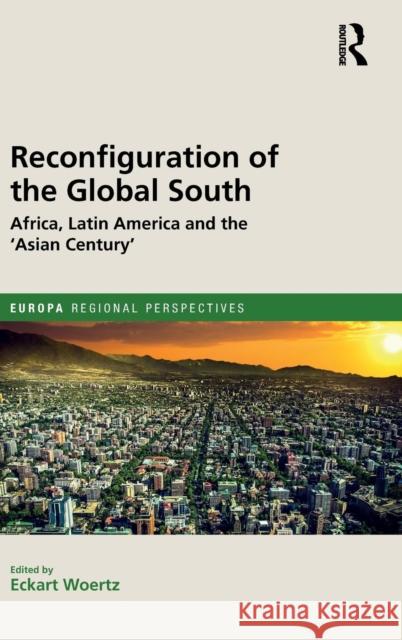Reconfiguration of the Global South: Africa and Latin America and the 'asian Century' » książka
Reconfiguration of the Global South: Africa and Latin America and the 'asian Century'
ISBN-13: 9781857438635 / Angielski / Twarda / 2016 / 276 str.
Reconfiguration of the Global South: Africa and Latin America and the 'asian Century'
ISBN-13: 9781857438635 / Angielski / Twarda / 2016 / 276 str.
(netto: 696,83 VAT: 5%)
Najniższa cena z 30 dni: 724,19
ok. 22 dni roboczych.
Darmowa dostawa!
Since the 1980s there has been a steady shift from West to East in the international system, economically, politically and culturally. Emerging markets in Asia have moved up the value chain of industrial production processes, while the share of Western industrialized countries in global gross domestic product has declined. Countries such as China and India are asserting themselves in security matters and seeking new avenues for investment flows and development co-operation. China s expected shift from export-led growth to domestic consumption might further change patterns of trade and capital flows, and it is an open debate whether the growth dynamics of India might outstrip those of China. While the rise of China and other Asian powers has been studied extensively, much less work has been done on how Africa and Latin America position themselves in this process. What will the role be of Africa and Latin America in the Asian Century and associated reconfigurations of global value chains? Will these regions be able to assert themselves and find a voice of their own? Will they manage to develop industries of their own and diversify trade relations? Will they launch new ways of regional south-south co-operation? What is the role of migrant communities and cultural exchange? Do Western and Asian approaches to these regions differ (Washington vs. Beijing consensus)? This book brings together renowned academics from Africa, Latin America, Europe and the USA, who bring refreshing perspectives on an under-researched topic, ranging from a conceptualization of the issue within new theoretical approaches, to unique case studies based on field work. "











